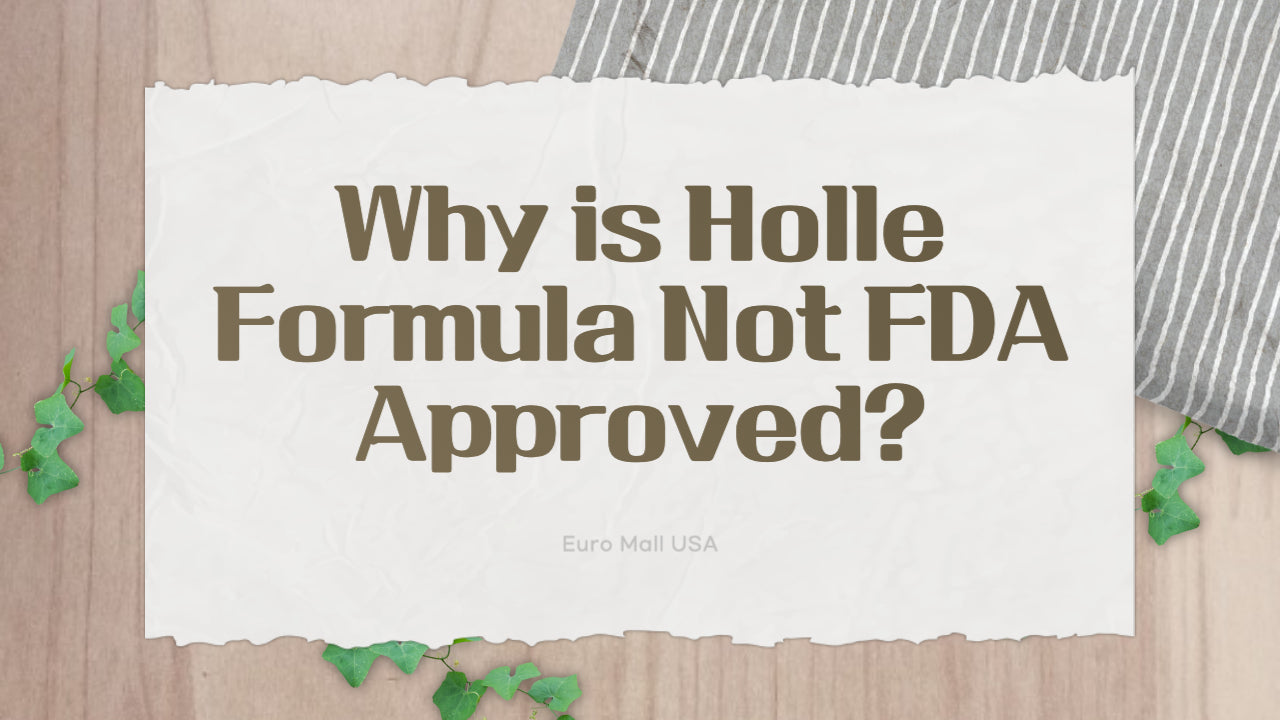When it comes to infant nutrition, parents are often overwhelmed by the myriad of choices available. One brand that frequently comes up in discussions is Holle Formula. Renowned for its organic ingredients and European origins, Holle has garnered a loyal following. However, many parents in the United States are puzzled as to why Holle Formula is not FDA approved. In this blog post, we will delve into the reasons behind this and explore what it means for parents considering this option for their babies.
Understanding FDA Approval
What Does FDA Approval Mean?
The Food and Drug Administration (FDA) is a federal agency responsible for protecting public health by ensuring the safety, efficacy, and security of drugs, biological products, and medical devices. When it comes to infant formula, FDA approval signifies that a product meets specific nutritional requirements and safety standards set by the agency.
The Importance of FDA Approval
FDA approval serves as a benchmark for quality and safety. It assures consumers that the product has undergone rigorous testing and meets stringent guidelines designed to protect infants' health. Without this seal of approval, parents may question whether a formula is safe or nutritionally adequate for their babies.
The Case of Holle Formula
What Is Holle Formula?
Holle Formula is a European brand known for its commitment to organic farming practices and high-quality ingredients. Originating from Switzerland, Holle has been producing baby food since 1933. The brand prides itself on using biodynamic farming methods and avoiding synthetic chemicals or additives.
Why Isn't Holle Formula FDA Approved?
Despite its popularity and reputation in Europe, Holle Formula has not received FDA approval in the United States. Several factors contribute to this:
-
Regulatory Differences: The nutritional requirements and regulatory standards for infant formula differ between Europe and the United States. While European standards are stringent in their own right, they do not always align with those set by the FDA.
-
Costly Approval Process: Obtaining FDA approval involves extensive testing and documentation, which can be both time-consuming and expensive. For some companies like Holle, navigating these regulatory hurdles may not be financially viable or strategically necessary given their strong market presence in Europe.
-
Labeling Requirements: The FDA has specific labeling requirements that must be met before a product can be approved for sale in the U.S. market. These requirements include detailed information about nutritional content, ingredients, and manufacturing processes—criteria that may differ from European regulations.
-
Market Focus: Holle's primary market is Europe where they already have established trust among consumers who prioritize organic products. Expanding into the U.S., especially under different regulatory conditions, might not align with their business strategy at present.
What Does This Mean for Parents?
Safety Concerns
The absence of FDA approval does not necessarily mean that Holle Formula is unsafe; rather it indicates that it hasn't been evaluated according to U.S.-specific guidelines. Many parents still choose to import Holle due to its organic credentials and positive reviews from other users.
Importing Challenges
Importing non-FDA approved formulas like Holle can pose challenges:
- Customs Issues: There’s always a risk that shipments could be held up or rejected at customs.
- Supply Consistency: Relying on imported goods can lead to supply inconsistencies.
- Cost Implications: Importing products often incurs additional costs such as shipping fees and import duties.
Making an Informed Decision
Parents considering using non-FDA approved formulas should consult with pediatricians who can provide guidance based on individual nutritional needs of their baby while weighing potential risks associated with non-regulated products.
Conclusion
While Holle Formula remains unapproved by the FDA primarily due to differing regulatory frameworks between Europe & USA along with costly approval processes; it continues being favored among many parents globally due its commitment towards organic farming practices & high-quality ingredients despite challenges posed during importation into USA markets without official endorsements from local authorities like USFDA . Ultimately , making informed decisions regarding infant nutrition requires thorough research coupled with professional medical advice ensuring optimal health outcomes tailored specifically towards each child’s unique dietary needs .


























